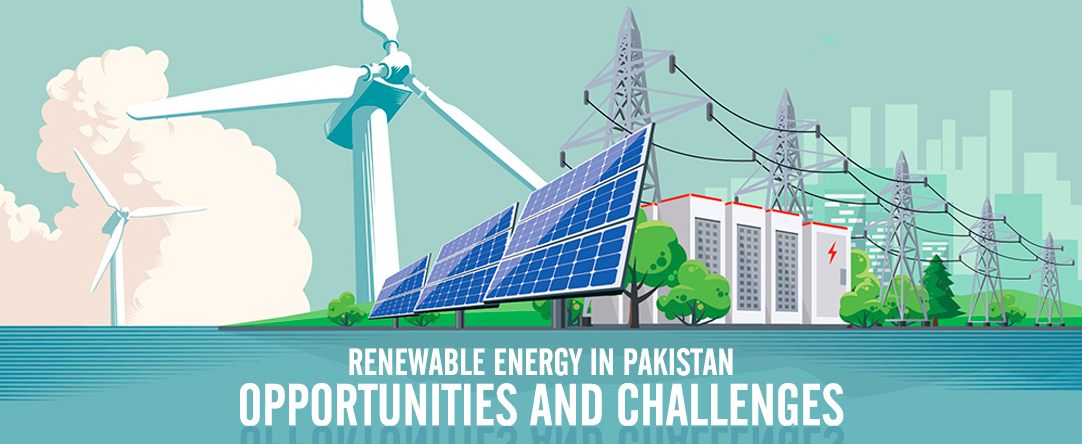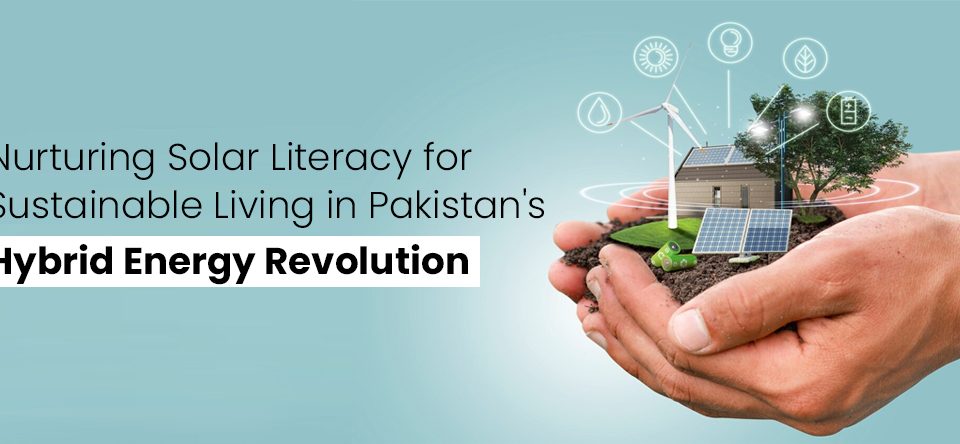
How to Find the Best Solar Panels for Your Home Based on Load Calculations
January 11, 2023
The Latest Technology in Solar Energy and Its Impact in Pakistan
December 28, 2022Renewable energy has been on the rise globally over the past few years, and this trend is set to continue in Pakistan. For a country like Pakistan, which is stricken by chronic energy shortages, renewable energy has the potential to play an essential role in the future. However, renewable energy projects have encountered several challenges in Pakistan, notably the need for more infrastructure and regulatory uncertainty. To overcome these challenges, policymakers must develop a clear understanding of the opportunities and constraints associated with renewables.
This blog post will provide an overview of the renewable energy landscape in Pakistan and discuss some of the key opportunities and challenges currently facing the sector.
Challenges of Renewable Energy in Pakistan
Lack of Infrastructure and Limited Access to Investment
Pakistan has a significant renewable energy potential but needs more infrastructure to capitalize on this potential. The country has abundant solar and wind resources but needs more transmission capacity to move these resources to market. Additionally, the Pakistani government is often reluctant to invest in renewable energy due to concerns about grid reliability. However, if Pakistan can overcome these challenges, its renewable energy sector could be a significant player in the global market.
Political Instability
Pakistan faces several political instability issues that could prevent it from fully embracing renewable energy. Instability in the northwest, where most of Pakistan’s renewable energy potential is located, has hindered investment in the sector. Additionally, Islamabad’s refusal to ratify the Kyoto Protocol and reliance on imported oil and gas has put Pakistan at odds with international donors.
Political instability also affects the country’s ability to collect revenue from its solar and wind power industries. Despite these challenges, there are several reasons why Pakistan should focus on renewable energy as an essential part of its overall policy agenda. Renewable energy can provide much-needed employment and income opportunities for the country’s poorest residents, help reduce greenhouse gas emissions and provide security against dependency on foreign oil supplies.
Technical Barriers
Renewable energy is becoming increasingly popular worldwide, as it is a reliable, sustainable source of electricity. However, renewable energy has some technical challenges that need to be overcome before it can be widely adopted in Pakistan. One of the main challenges is that renewable energy technologies are only sometimes efficient. For example, solar panels need sunlight to work, but the sun does not always shine in Pakistan. Solar power plants need to be built with a lot of backup power; if the sun isn’t shining, they can switch to using other energy sources like coal or gas.
Another challenge is the transmission. Renewable energy needs to be transmitted across large distances to be used by consumers. This is particularly difficult in Pakistan because the country is very sparsely populated and has no major highways or railways. This means that renewable energy projects have to be built near major cities; however, this also means that these projects are often at risk of being disrupted by political or environmental changes.
Opportunities for Renewable Energy in Pakistan
Government Support
The Pakistani government has supported renewable energy development in recent years, intending to increase its energy independence. There are several opportunities for renewable energy development in Pakistan, including solar, wind, and biomass.
Growing Solar Market
Pakistan is one of the most solar-rich countries in the world. It has ample sunlight and good weather conditions to generate solar energy. Solar power has been recognized as a renewable energy source with a high potential for economic development, environmental protection, and social equity.
According to a study by global consulting firm Ernst & Young (EY), Pakistan has the potential to become one of the world’s leading renewable energy markets with an annual installed capacity of 275 gigawatts (GW). These figures represent an estimated increase of 134% from 2017 levels.
Solar developers are already rushing to take advantage of this opportunity. The majority of Pakistan’s installed capacity will be concentrated in four provinces: Punjab (50%), Sindh (25%), Baluchistan (10%), and Khyber Pakhtunkhwa (5%).
Technological Advances
Renewable energy technologies are becoming more and more affordable and efficient, making them an attractive option for powering the world. Pakistan has several potential renewable energy resources that could be harnessed to provide clean energy. The country’s sunny climate and ample sunlight make it an ideal location for solar power installations. Solar power is also relatively affordable, providing an excellent opportunity for Pakistan to become a leading solar energy producer.
The country also has significant wind power potential. The winds that blow through Pakistan are high in velocity and have a long reach, making them an ideal renewable energy source.
Additionally, Pakistan already has many wind turbines, making it easy to expand the industry. Pakistan has also identified biomass as another potential renewable energy source. Biomass projects can be small-scale or large-scale, depending on the project’s requirements. There are many opportunities for renewable energy in Pakistan.
By harnessing these resources, Pakistan can continue to provide reliable and affordable electricity to its citizens while helping to reduce greenhouse gas emissions.
Final Thoughts
In a nutshell, the renewable energy landscape in Pakistan is full of potential. Despite the numerous challenges facing the sector, many opportunities can be taken to develop the sector further and create a more sustainable energy future for the country. Government policies, technological advancements, and public-private partnerships all have a role to play in helping to move the renewable energy sector in Pakistan forward.
With the proper focus, Pakistan can be a leader in renewable energy and create a brighter, more sustainable future for its citizens.




